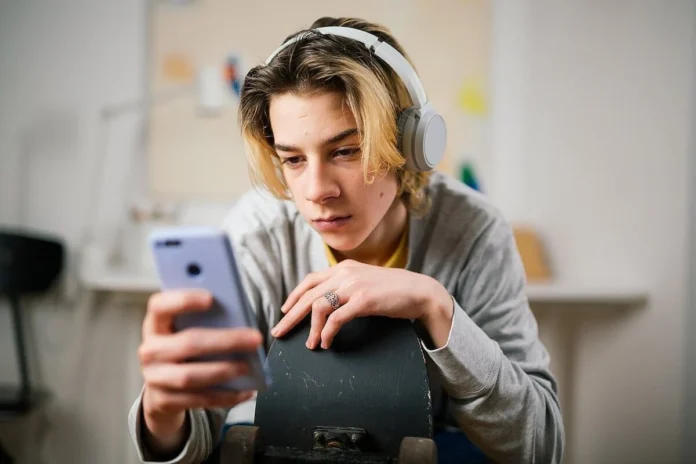Staff Reporter
study led by researchers at the University of California, San Francisco (UCSF) has revealed that increased social media use among pre-teens is linked to a staggering 35 percent rise in symptoms of depression.
According to KTVU, the research highlights the mental health risks associated with social media use in this age group.
The study, published on Wednesday in the respected journals JAMA and The Lancet, indicates that pre-teens who increased their social media activity reported an average increase of 35 percent in depression symptoms.
Dr. Jason Nagata, a pediatrician and associate professor at UCSF, spearheaded the research team that monitored 12,000 nine-year-olds over four years, examining their social media habits and mental well-being.
Initially, the average time spent on social media was just seven minutes per day. However, by the end of the four-year study, children were spending an average of 73 minutes daily on various platforms.
The study also found that two-thirds of the children had underage social media accounts by the age of 12, with TikTok, Snapchat, and Instagram being the most popular.
This highlights a significant issue, as many children are circumventing the minimum age requirement of 13 set by social media companies.
Dr. Nagata emphasized the crucial role of sleep for growth, development, mental health, and attention in school.
He noted that the most active time for phone use among the children was right before bedtime, raising concerns about how social media use may impact sleep patterns and overall health.
The findings lend support to the proposed social media ban on children currently being considered in Texas. This legislation would hold companies like Apple and Google responsible for controlling the download of social media apps by minors until they reach an appropriate age.
While acknowledging that social media can have positive aspects, such as facilitating communication with friends, the study underscores the importance of parents engaging in open discussions with their children about responsible social media use.
The youngest generations are navigating a tough landscape when it comes to social media.
Despite increasing evidence linking these platforms to depressive symptoms and risky behaviors, social media remains a primary way for young people to connect and communicate with friends.
To tackle this issue, the American Academy of Pediatrics recommends using tools from its Family Media Plan to foster healthier digital habits for both children and parents.
Dr. Jason Nagata, shared practical advice on the subject. “As a father of two young kids, I know that simply telling children to ‘get off your phone’ doesn’t really work,” he stated.
“Parents can lead by example through open, nonjudgmental conversations about screen use. Establishing screen-free times for the entire family—like during meals or before bedtime—can help everyone, including adults, develop healthier digital habits.”
The American Pediatric Association offers resources on its website to help families create a media use plan and encourage healthy habits.

